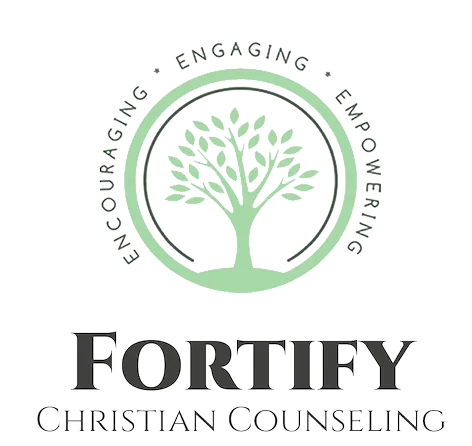Understanding Abuse: A Path to Healing
Abuse can take many forms, including physical, verbal, emotional, sexual, and spiritual abuse. It can leave deep emotional and physical scars that affect one’s sense of self-worth and relationship with others. Recovery from abuse is a journey that often requires time, support, and strength.
Recognizing Signs of Abuse
Understanding the signs of abuse is the first step in seeking help. Look for:
- Withdrawal from friends and family
- Changes in behavior or personality
- Signs of physical injury or neglect
- Emotional instability (anxiety, depression)
The Impact of Abuse
Immediate Effects: Victims of abuse may experience physical injuries, emotional turmoil, and psychological distress. Common effects are anxiety, depression, low self-esteem, and post-traumatic stress disorder (PTSD).
Long-term Effects: Survivors may face ongoing challenges in relationships, daily life skills, and overall mental, emotional, and physical health.
Societal Impact: Abuse has larger societal implications, contributing to cycles of violence and trauma within communities. A culture of silence or stigma surrounding abuse can perpetuate these issues and continue the cycle.
Biblical Understanding of Abuse
1. Value of Human Life
- Every individual is created in the image of God with deep value. This establishes the inherent worth and dignity of each individual. Abuse contradicts God’s design and divine plan for his creation.
- Genesis 1:27: “So God created mankind in his own image, in the image of God he created them.”
2. God’s Desire for Wholeness
- God desires wholeness and healing for each individual. Jeremiah 29:11 says, “For I know the plans I have for you,” declares the Lord, “plans to prosper you and not to harm you, plans to give you hope and a future. He does not want anyone to suffer, and He cares deeply for those who are troubled.
3. The Call to Justice
- The Bible emphasizes justice and care for the vulnerable. Isaiah 1:17 says “Learn to do right; seek justice. Defend the oppressed.” God seeks out justice and wants to honor and be there for those who are abused. Seeking justice and accountability for abusive behaviors is a biblical imperative.
Steps to Recovery
1. Acknowledge Your Pain
Recognizing the affliction and trauma brought on by abuse is the first step toward healing. Denial can prolong one’s suffering. It’s okay to feel angry, embarrassed, conflicted, wronged, or ashamed. Your feelings let you know that something has taken place and should be recognized. Remember that your feelings are valid and acknowledged by the Lord.
2. Seek Safe Relationships
Finding supportive friends, a church, family members, or a counselor who can listen is paramount to rebuilding good relationships. Look for relationships rooted in trust, safety, and mutual respect. A pastor, church leader, or small group can also provide spiritual support when wrestling with questions of faith.
3. Engage in Prayer and Scripture
Prayer can be a powerful tool for healing. In the Psalms, David expresses deep emotions in difficult times. It is a reminder that God sees the deep pain of abuse and hears our cry out to him in prayer. Scripture reassures us of God’s attentiveness and care.
- Psalm 6:9:” The Lord has heard my cry for mercy; the Lord accepts my prayer.”
4. Establish Boundaries
Establishing healthy boundaries is vital in the recovery process. This may involve distancing yourself from the abuser and protecting yourself from further harm. This also may include establishing new boundaries with others.
5. Consider Professional Help
Engaging with a therapist or counselor who has experience in dealing with trauma or abuse can be one of the most effective ways to heal. Counseling can provide tools to process your experiences and emotions in a safe environment.
6. Forgiveness and Letting Go
Forgiveness is a challenging yet essential aspect of recovery. It does not mean excusing the behavior but releasing the hold that the abuse has on your life. Jesus teaches us in His word about forgiveness. Matthew 6:14 says, “For if you forgive other people when they sin against you, your heavenly Father will also forgive you.” Pray for the strength to forgive, but understand that healing takes time.
7. Finding Hope and Healing
Recovery from abuse is a path one walks down, and it may take time to heal and recover from. It’s essential to remember that healing takes time, and there may be setbacks and difficulties along the journey. The Bible assures us that God walks with us in our suffering and offers hope amidts our trials.
8. Community Support
Being involved with a church that can come alongside you and understands the complexities of abuse can be an integral part of one’s process. Many churches offer support groups specifically for survivors of abuse, providing a safe space for sharing and offering community.
Abuse is a devastating experience that is outside of God’s design, but it does not have to define the life God has for you. Through God’s grace, support from others, and a commitment to healing, recovery can be possible. Remember that you are not alone, and there is hope for a brighter future rooted in the love and strength of Christ.
Resources
- “Is It Abuse” by Darby Strickland
- “The Emotionally Abusive Relationship” by Beverly Engel
- “Healing the Wounded Heart” by Frederick W. D. F. Crews
- National Domestic Violence Hotline: [thehotline.org](https://www.thehotline.org/)
- RAINN (Rape, Abuse & Incest National Network): [rainn.org](https://www.rainn.org/)

